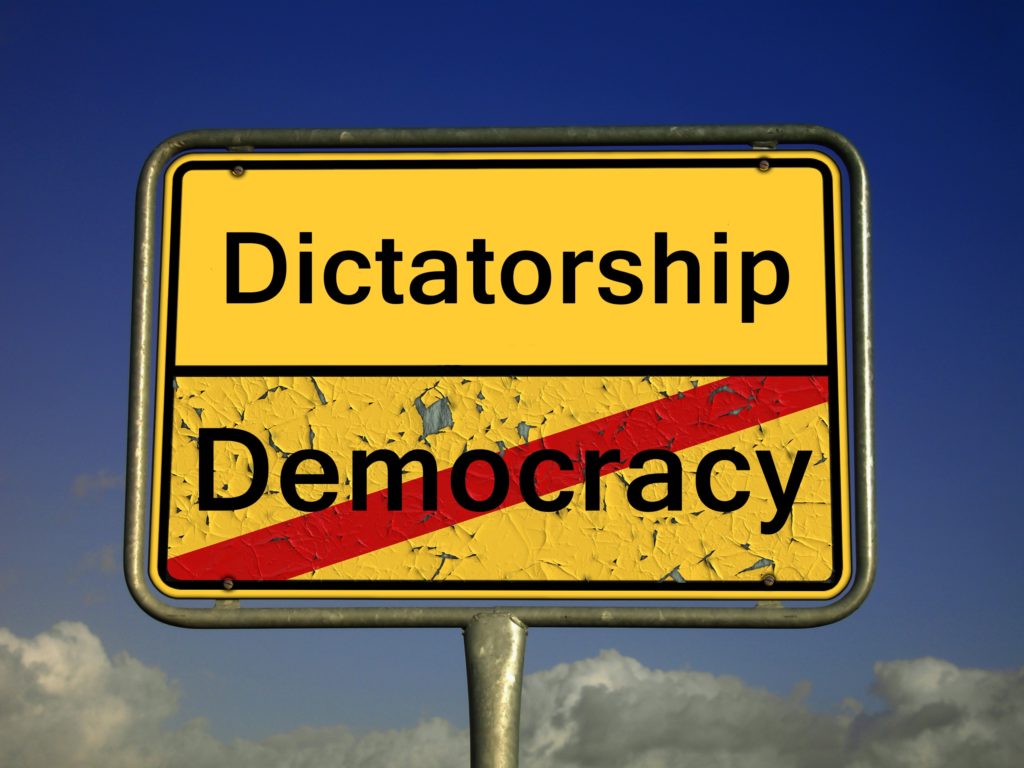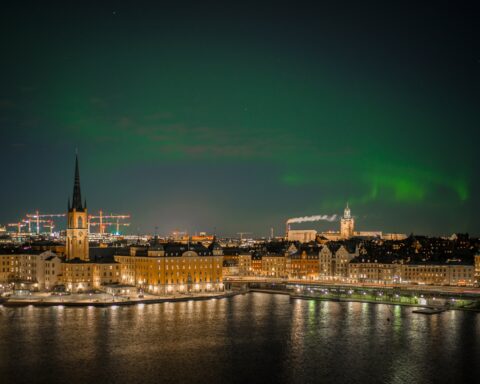
DEMOCRACY. During last year in Sweden, the 100th anniversary of the introduction of parliamentary democracy was publicly manifested. In principle, the introduction of democracy came to include all citizens, especially after the full voting rights were also given to women in 1921.
[DISPLAY_ULTIMATE_PLUS]
At that time, it was primarily liberals and social democrats in Europe who advocated the introduction of equal democratic and proportional representation. Today, in the time of decentralisation trends as with blockchain, robotisation and virtual communities, more actors should be involved in democratising our world for a post-industrial future.
As humanity, we need to understand democracy not as representation per se but as a process of conversation that can lead to official or unofficial decisions and agreements. The strength of democracy is that human diversity regarding interests, values and opinions result in competition and conflicts which on the long-term also lead to solutions, compromises and mutual understanding. Democracy as conversation means that different ideas and proposals can be analysed and tested to be legitimised and accepted or to be disregarded and rejected.
Another strength of democracy is that democracy itself is in a constant change in pace with technological and social changes. During the latest years, there have been significant and noticeable changes in values and behaviours. In science terms such as ”post-material” and ”self-development” values are being used to describe such trends that, for example, are taking place in discussions about basic income, green taxation and humanitarian migration.
The current democratic representation, as in Europe and America, is still based on the roots of the industrial society. The late nineteenth and early twentieth century in Europe were periods of large scale changes and rapid transformation from an agricultural to an industrial society. Such development also culminated in new political conflicts and movements that came to be described as class struggle, mass movements and left vs right spectrum. Similarly, the transformation from industrial to post-industrial society also produced new political conflicts and movements.
In Sweden, this is partly reflected in the 2016 government study “Democracy inquiry” (Demokratiutredningen). The study shows that today fewer Swedes are active as members of political parties and that more voters are voting for different parties in different elections comparing to voting behaviours during 1980s and 1990s. One can also say that the time of “class voting” or “clan voting” is behind us – the time when more individuals were voting for part X because one identified with class X because of family history, social status or political ideals.
The case of Sweden is compelling since its democratic system used to be one of the world’s most one-dimensional by focusing on the left-right spectrum consisting of primarily economic discussions about labour market, welfare and taxation. The current situation is a much more multi-dimensional process where global and European dimensions of politics as well as non-economic topic as views on religion, refugees and identification are much more dominating the public discourse.
The solution for the future of democracy would be the transformation from focus on representative, or indirect democracy, to focus on liquid democracy.
There is also a general trend in Europe where fewer people are identifying themselves in primary or general terms, for example as liberals, socialists or conservatives. Instead, one can speak about the process of ”uberisation of politics” where more people are organising themselves based on topics and interests that matter to one regardless of ideology behind and without involvement in political parties.
It is also becoming more common that individuals are more liquid in their political identifications by supporting different parties and their proposals on various topics and spheres. Such development is also meaning new understandings and views, which is a minority and majority but also what does it mean to be an individual when it comes to affections, citizenship and participation.
The solution for the future of democracy would be the transformation from focus on representative, or indirect democracy, to focus on liquid democracy. As an idea, liquid democracy is based on being a mixture of direct and representative democracy.
Another vital aspect is vote delegation, meaning that an individual can delegate a vote to another individual or to an organisation that does not have to be a political party. By such methods, a 21-st century human should be able to vote every day, week or month on different topics, both locally and globally.
Last but not least, the concept of liquid democracy could mean a fairer system regarding the relations between individual freedom and mandates of public institutions. For example, through history, liberals have been sceptical that democracy will be used to reduce personal freedom by increasing the powers of public institutions. While on the other side, socialists have been suspicious that democratic constitutionalism would prevent implementation of higher taxation and redistribution. With liquid democracy, ideas as ”free citizenship” and ”non-aggression principle” could become more comfortable to implement, which means that individuals could find better compromises as in economic questions.
In combination with crowdfunding and cryptocurrency, it could become more comfortable for us to co-create and cooperate with different ideas and proposals. That would also mean that by co-creation we could privately fund those conventional institutions and programs we wish to implement after liquid democratic procedures and without using coercion against those who did not support a particular idea or proposal.
Future democracy will still demand constitutionalism based on human freedom, rights and security. And the transformation from the current representative model to a liquid model offers new possibilities for more inclusive, co-creative and glocal democratic conversation and decision-making processes. Therefore, in pace with the current post-industrial and decentralising trends there is a necessity to renew democracy for the 2030s.

vladan.lausevic@opulens.se








